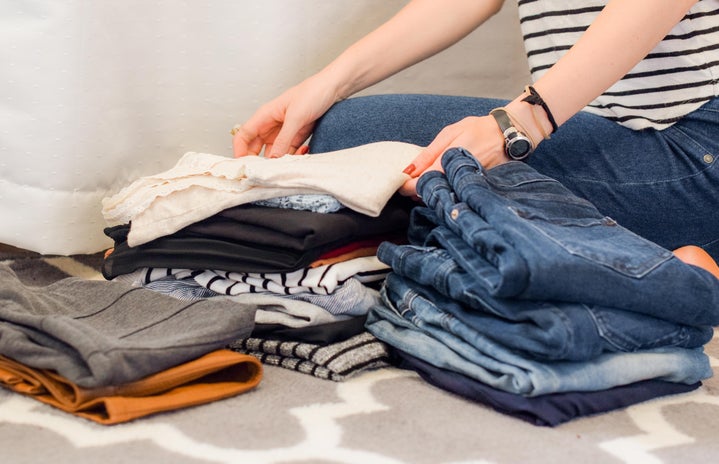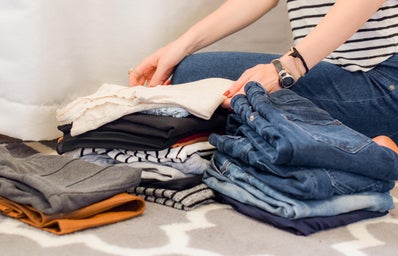Being in quarantine has caused me to be a more social person virtually, and I’m sure it has had the same effect on everyone else. It’s the reason the internet exists. It connects people, and gives a sense of community, even from a distance. It’s even a great means of making money, such as; selling artwork, promoting music. But, as I’ve been scrolling through Instagram, and other platforms, I’ve noticed something major; the abundance of independent “vintage” shops. If you don’t know what I’m talking, let me explain. These independent vintage shops I’m referring to are the ones run by individuals working from home that resell pieces they’ve found in their local secondhand clothing stores. Yes, this sounds like an innocent way to make money, and sure, it might be completely acceptable in some communities, but there are some major issues I have with them.
For starters, these independent owners typically buy in bulk. They stock up for their at-home inventory, and then post their newfound pieces on their Instagram feed, selling them for usually triple the price. See the problem? Not yet? I’ll elaborate.
Thrift stores were created as a resource for individuals in low-income households, as a place where they could find affordable, lightly used goods, ranging from furniture to clothes and shoes. Growing up, I have no shame in saying my family shopped at thrift stores, before thrift stores became a trend. We needed to. When we went, we always tried to find the clothes that looked less worn than the others, and it was these secondhand stores that helped us through hard times, since we couldn’t afford expensive name brands.
The issue with these independent online shops is that, it is limiting access to the more “acceptable” looking clothing in these thrift stores. These individuals who buy in bulk for their own inventories are buying clothes that people could have bought and worn immediately. But instead, they’d rather have those clothes stocked away until someone willing to pay $35 for a secondhand sweatshirt that originally costed them $5, comes along.
Maybe it’s just me, but I find this problematic. Selling used clothing for their original prices and calling them “vintage” is just a means of profiting off the resources intended for the lower, working class.
I understand that some things found in thrift stores are nice and can potentially be sold for a higher price, but it’s the principle. It’s the lack of regard for the surrounding community, and for the people in it that cannot afford brand new items. It would be very different if the clothes that these online vintage shops sold were donated to them from people in their community. But, to buy out a collection of items from local thrift stores is not helping anyone besides that person. And these individuals do not understand the implications that buying in bulk has on the thrift store. If people continuously buy an abundance of clothes, what do you think happens to the pricing of those clothes? The owners realize that more customers are coming in, buying a lot, and in return, the prices are raised. I’ve witnessed this myself. Within the last 10 years, the prices of clothing in these stores have gone up significantly. Who does this benefit? Certainly not the working class, nor the people in it who rely on thrift stores when they need clothes, or shoes, or furniture for their homes. If you do this, you cannot claim to care about low-income households whose primary resource for clothing is the thrift store.
My suggestion to whoever is reading this is, do not buy from the online vintage shops you come across while scrolling through social media, unless the clothes they are selling were bought and worn by them. Think about the things I’ve told you, and the underlying problems that arise with these shops if their source of clothing is their local thrift store. And always think about the community around you.
If you’re interested in learning more about local thrift stores and other means by which individuals in lower income households seek resources, this article from TIME is a great start: https://time.com/5364170/thrift-store-history/


